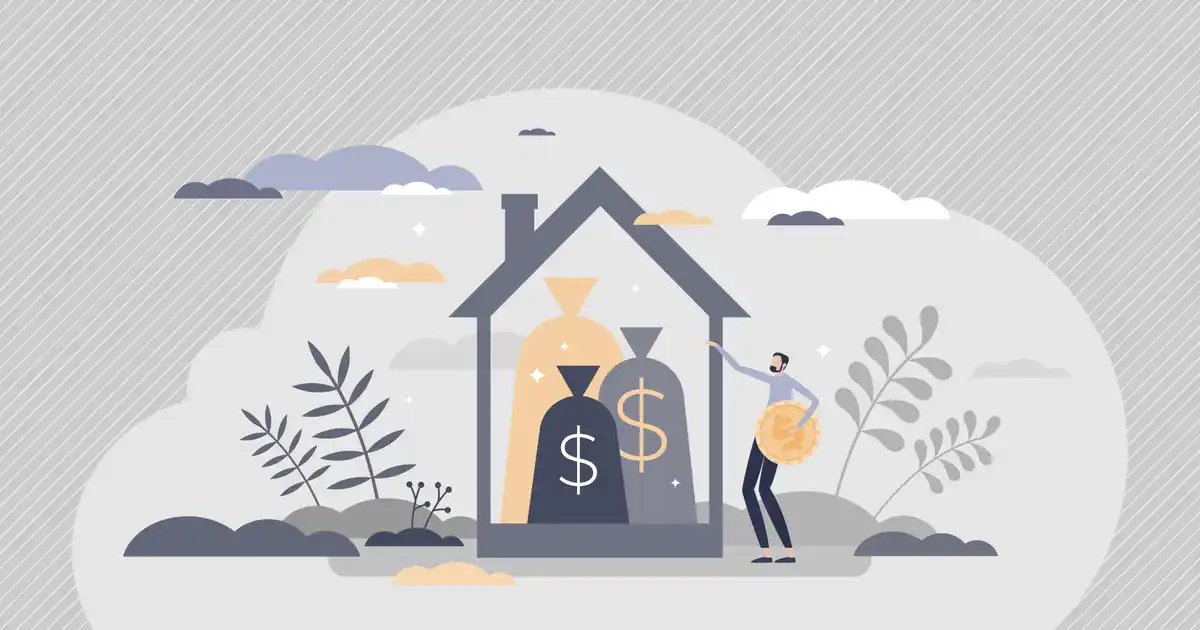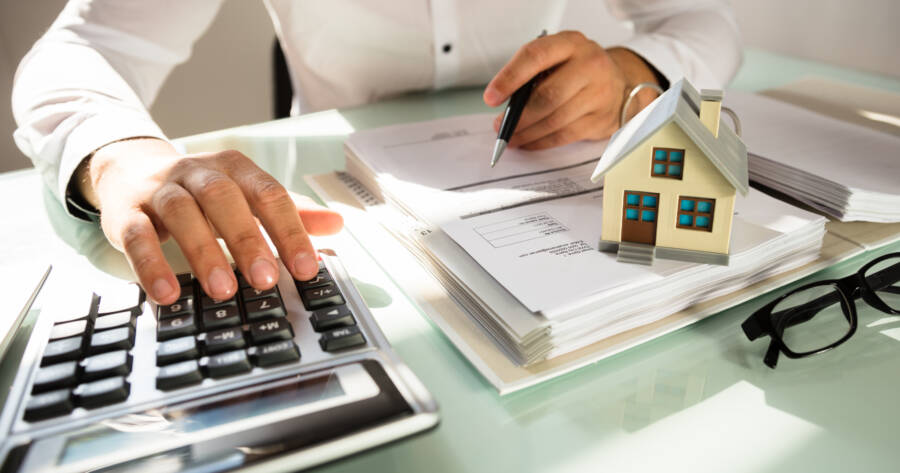As a first-time homeowner, you may be aware of some of the additional costs of homeownership. This includes mortgage closing costs, homeowner insurance, monthly mortgage payments, and utility bills. However, one of the costs that rookie homeowners often overlook is property taxes. This is a simple tax on real estate properties. The amount is determined by the local government, depending on the property’s location and its assessed value. It’s important to know how property taxes are calculated, to make sure you are being charged a fair amount. It’s also a significant cost that comes with home ownership — so make sure you’re budgeting for it.
What Are Property Taxes?
A property tax is a fee paid to the local government based on the assessed value of a real estate property. The rate charged varies from county to county. Almost every single type of property or land ownership comes with this tax.
The local government sends a tax bill to homeowners, usually once or twice a year. These governments use the taxes to fund county schools, road construction, libraries, fire departments, and salaries for local government staff.
How to Calculate Property Tax
When calculating property tax, the tax authority sets a general tax rate. It gets applied to every similar property in its jurisdiction. This tax rate, also known as the mill rate or millage rate, can change from year-to-year, depending on the local government’s needs.
The tax rate is multiplied by the property’s assessed value to determine the amount of taxes due. Here are the steps involved when calculating property taxes.
Determine the Assessed Value
The assessed property value is different from the appraised or market value of the property.
Tax assessors generally calculate the value of a home every one-to-five years. They base their assessment on factors like age of the home, features, acreage of land, latest purchase price, and comparisons with similar properties in the neighborhood. Tax assessors may also adjust the property value every time the property is sold, purchased, built, or remodeled. They can simply refer to the legal paperwork filed with the local government.
Most of the time, the assessed value will be below the fair market value. Not much lower, though. It’s usually 80-to-90 percent of its fair market value.
You can find out the value of your home by checking the local assessor or municipality’s website. You can also search by state, county, and ZIP code on Netronline.
 Shutterstock
ShutterstockKnow the Mill Levy
Apart from the property’s assessed value, you should find out the mill levy in your area. This tax rate varies from county to county. It also depends on the amenities available in the county and the revenue target that the county expects.
You can find the mill rate on the municipality or tax assessor’s website. It’s typically represented by a percentage. One mill represents 1/1000 of a dollar. For example, if the mill rate is 30 mills per $1000, that means you’ll pay $3,000 for a property valued at $100,000. A mill rate of 30 mills is the same as a three percent tax rate.
Determine the Property Taxes
Once you have determined the property’s assessed value and the mill rate, you can calculate the taxes due. Multiply the mill rate/county tax rate by the assessed value to get the expected tax amount on the property.
For example, let’s say your assessed property value is $300,000 and the local mill rate is 25. The tax bill is calculated as follows: $300,000 times 2.5% equals $7,500.
Assuming that the mill rate remains constant, you’ll be required to pay $7,500 in property taxes every year. If the mill rate declines to 20, your tax bill will also decline to $6,000. However, if you have remodeled or done some improvements to your home, the assessed value might increase, resulting in higher property taxes.
How to Assess Property Value
When determining the value of a property, assessors consider all relevant information to make an accurate assessment. They consider the maintenance cost of a property, value of comparable properties, replacement costs for the property, and any improvements made.
To get the most accurate assessment, assessors may use one of these following evaluation methods.
 Shutterstock
ShutterstockSales Comparison
The assessor compares the property to other similar properties that have recently sold in the neighborhood. The comparison is based on the property location, improvements, and state of the property. As much as possible, they will try to compare on an “apples to apples” basis. That means they will try to compare using houses with similar size and features.
The assessor will also adjust for specific variables that may raise or lower the property value. These could include renovations, additions, or needed repairs. If you’ve added new home features that make your property superior to those in the neighborhood, this could increase the home’s assessed value.
Cost Method
This method determines the amount of money it would cost to replace a property from ground up. It includes the cost of labor and materials too. For older buildings, the assessor considers the depreciation that has occurred to determine its current value.
Income Method
With the Income Method, the assessor determines the value of the property based on the income it would earn if it was rented out. This method considers the property’s maintenance costs, insurance expenses, taxes, and the potential income that the homeowner would get from the property. This assessment method is mostly only used to value commercial and business properties.
How to Pay Property Taxes
You can usually choose to pay the property taxes as part of your monthly mortgage payments. The lender divides the annual property taxes into 12 equal monthly payments. (Or however many mortgage payments you make in a single year.) You’ll then make a single payment that includes the principal, interest, property taxes, and (sometimes) mortgage insurance. The lender then sets aside the tax payments into an escrow account. When the property taxes come due, they send that money to the local government.
Alternatively, you can choose to pay your property taxes yourself. You’ll receive a bill from your municipality on a regular basis (annual, bi-annual, or quarterly). After that, you can pay it like any other bill — mail in a check or pay online. Some people prefer this, because it lowers their mortgage payments. However, you still have to budget for these larger bills to come regularly.
It’s important to remember that the homeowner is solely responsible for making these tax payments. You can incur late fees or interest penalties if you are late paying your property taxes.
 Shutterstock
ShutterstockHow to Dispute an Assessed Property Tax Bill
If you feel that your property tax bill is too high, you can appeal it by disputing the assessed property value. If the property is significantly overvalued, a successful appeal could result in substantial savings. Once you receive your tax bill, you may be allowed a 30-to-90 days window to appeal, depending on the state.
To make an appeal, start by downloading and filing appeal forms from the county website. You can probably submit them electronically (but you may have to mail them in the old fashion way). You may also be required to pay appeal fees, which can range from $10 to $200, depending on your property value and state.
The appeal form may also require you to provide reasons for the appeal. They want you to justify why the tax bill should be adjusted. For example, check the records of comparable properties in the neighborhood that show your home is overvalued by a big margin.
The Bottom Line
Like every other form of taxes, property taxes are basically unavoidable. If you own a home (or even land), you can expect that the local jurisdiction will be charging you a percentage of its value in taxes. When you’re budgeting for buying a house — whether it’s your first home or just your next one — don’t forget to consider the property tax in your ledgers.








